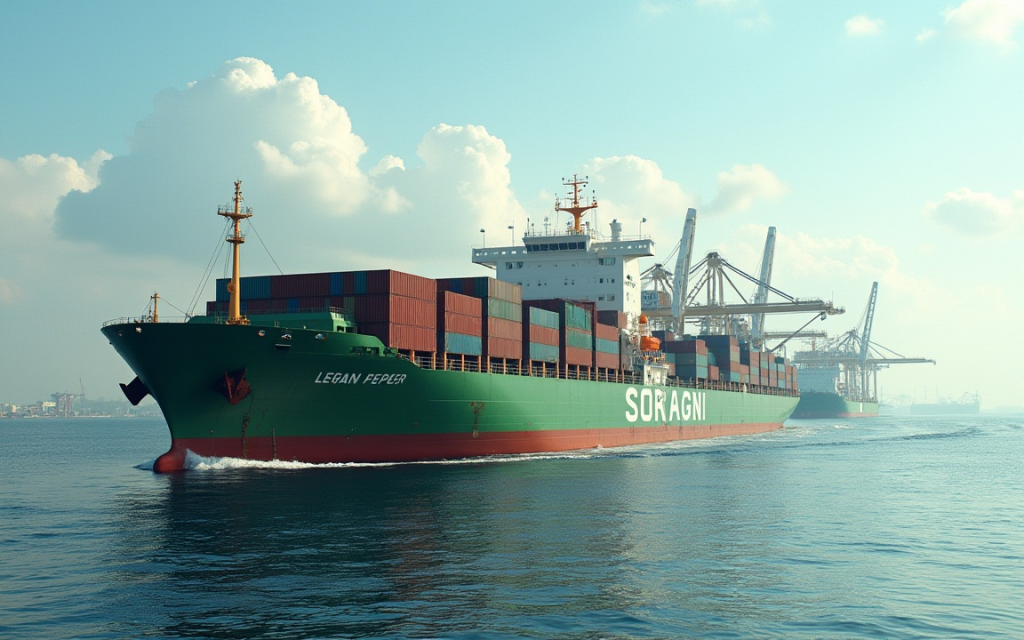Driven by the shipping industry’s net-zero carbon emissions target, demand for biofuels is rising. Biofuels offer an easily adopted solution due to their compatibility with current ship engine technology.
A Rystad Energy’s analysis indicates a lag in biofuel production capacity (including biodiesel and bio-LNG) compared to demand.
“Unconstrained biodiesel demand exceeds total supply and the outlook for bio-LNG is equally restricted, in both allocation and production,” the Norway based energy intelligence company said on Tuesday.
Biofuels may offer a more economical option than conventional marine fuels like very low-sulfur fuel oil (VLSFO), especially in meeting the International Maritime Organization’s GFI standard for low emissions.
Demand
If supply is not limited, global biodiesel demand in the shipping sector might surpass 140 million tonnes of fuel oil equivalent by 2028, the agency said.
Even in optimal circumstances, total biofuel production is projected to reach a maximum of approximately 120 million tonnes.
However, if sustainability standards favoring cleaner, second-generation biofuels are implemented, the potential supply significantly decreases to only 40 million tonnes.
Considering production uncertainties, actual output, and competition from other industries, the realistically obtainable quantity of biofuels for shipping is even lower.
Rystad added:
As new technologies emerge and regulations tighten, the pressure on the shipping industry to innovate and invest wisely has never been greater.
“Demand for biodiesel, if unrestricted, outstrips the total supply. The situation with bio-LNG is also constrained, with challenges for both production and allocation capacity,” Junlin Yu, Senior data analyst, shipping at Rystad Energy, said in a release.
Projected biomethane demand is a modest 16 million tonnes (fuel oil equivalent) by 2028.
However, the apparent surplus in supply is inaccurate, as over 84% of global biomethane is already designated for electricity generation, and another 10% is allocated to road transport, according to Yu.
“This leaves only 6% available for all other sectors, including maritime, making actual access far more limited than the numbers suggest.”
The shipping industry will likely face the shortage, which would have to be addressed, according to the agency.
Although future fuels like ammonia and methanol are promising long-term solutions, their high costs and infrastructural needs cause hesitation among shipowners who are awaiting more definitive market trends, Rystad said.
Viability
Biofuels currently appear to be the most feasible option for the shipping industry to meet the IMO’s increasingly stringent emissions regulations.
However, this interim solution is vulnerable, according to the agency.
Lack of thorough planning and proactive measures could quickly undermine its effectiveness in achieving compliance, it added.
Yu said:
Biodiesel and bio-LNG can be cost-effective under the IMO Net-Zero Framework, but only if their lifecycle greenhouse gas (GHG) emissions are low enough to qualify for IMO incentives.
However, the demand for bio-LNG in maritime transport significantly outstrips current production, indicating a substantial supply shortage.
To adapt to evolving regulations, shipowners need to act promptly by securing reliable biofuel sources and adhering to GFI targets, Yu added.
Currently, biofuels offer a more cost-effective alternative to traditional marine fuels, particularly those adhering to stringent low-carbon regulations.
Although blending biofuels at 30% or 50% provides a near-term solution for emission reduction goals, transitioning entirely to 100% low-emission biofuels presents the most significant long-term cost benefits and advantages.
Bio-LNG, especially with government subsidies, presents a more cost-effective alternative to biodiesel.
This makes bio-LNG a potentially valuable fuel source for the shipping industry as it aims for cleaner energy, Rystad said.
The post Why biofuel adoption in shipping faces supply and viability challenges appeared first on Invezz



